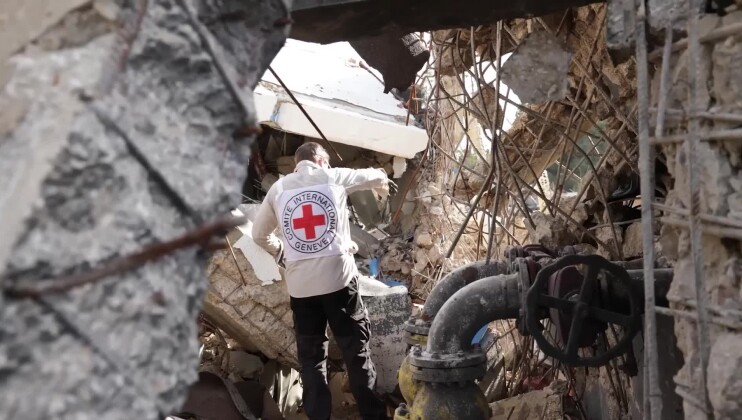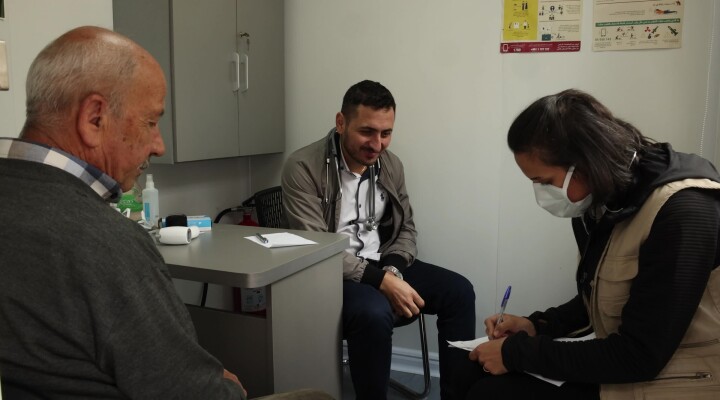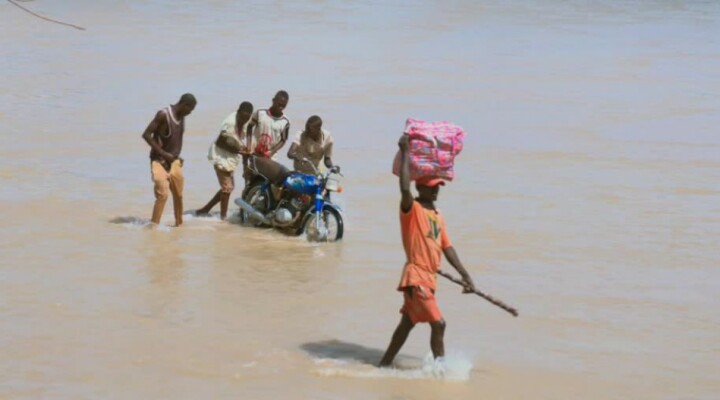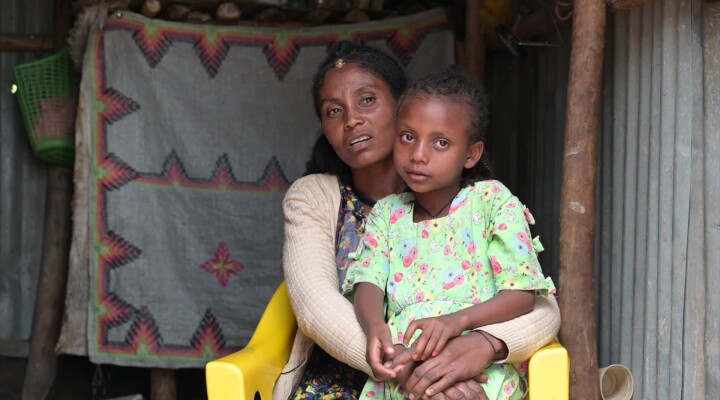Ukraine: Witnessing urban warfare’s aftermath in Irpin and Bucha; calls for improved humanitarian access as fighting intensifies in the East
Dominik Stillhart, the director of operations for the International Committee of the Red Cross (ICRC), visited Ukraine this week where he saw the devastating human cost of urban warfare in Irpin and Bucha and visited the ICRC’s urban water project, which will restore water supplies in the area.
“The damage that you see here is really impressive. After just a few weeks of hostilities, the number of houses that are destroyed, pumping stations that have been destroyed, water pipes... You can really see that the war here took a very heavy toll,” said Dominik Stillhart.
Conflict is uprooting lives in Ukraine, with civilians bearing the brunt of intense fighting in particular in the South and the Donbas area. Besides destruction and damage to civilian buildings and critical infrastructure, hostilities disrupt the urban services that are indispensable for sustaining life. People suffer from a lack of food, water, sanitation, electricity and health care.
At the same time, humanitarian access continues to be limited where hostilities are taking place, and this must change. Parties must do everything possible to ensure that people in cities affected by hostilities have access to vital humanitarian aid. “There is an urgent need for better respect of International Humanitarian Law, because if what we see here after only a few weeks of fighting is repeated in the east and in the south, we can expect the worst,” Mr Stillhart said.
The ICRC pursues its efforts to address the consequences of damaged vital infrastructures and the resulting disruptions of the supply of water, electricity and gaz. These efforts include the rehabilitation of a water pipeline between Kyiv and Irpin for the benefit of over 200,000 people.
The ICRC has called since 2014 on the parties to respect their legal obligations under international humanitarian law. Civilians and civilian infrastructure, medical facilities, vehicles and personnel must be protected and spared from the fighting. The ICRC calls on the parties to ensure unimpeded access for impartial humanitarian relief and safe passage for medical personnel and for civilians seeking safety.
Note to editors:
- The ICRC has been working for the people affected by the conflict in Ukraine since 2014. Our operations in the country are among the ten largest ICRC operations worldwide. Working closely with the Ukrainian Red Cross Society, we provide emergency assistance such as food, water, and other essential items. Our emergency health response has reached 145,000 people, across 75 health facilities in Ukraine. This includes medical supplies, treatment, evacuations and the deployment of 50 medical personnel who are delivering assistance and training across Ukraine. We support authorities to repair essential infrastructure, provide cash assistance to vulnerable people affected by conflict and help people who lost contact with their loved ones, among other activities.
- Established in 1863, the ICRC operates worldwide helping people affected by conflict and armed violence and promoting the laws that protect victims of war. A neutral, independent and impartial organization, its mandate stems from the Geneva Conventions of 1949. It is based in Geneva, Switzerland, and works in more than 100 countries.



